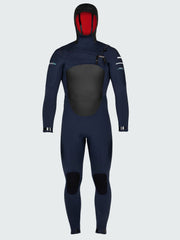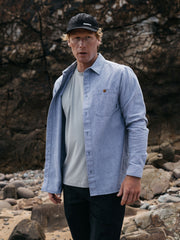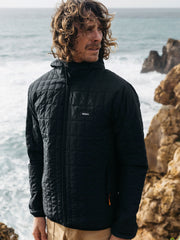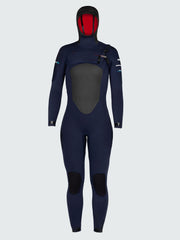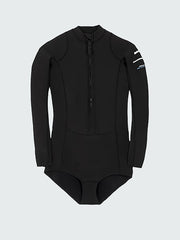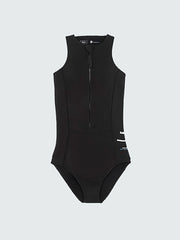These last couple of years I have been I have been diving deeper into this emerging discipline of Oceans and Human and Health. The exploration of how our health and wellbeing are inextricably linked to the health of the ocean. There are a growing number of initiatives exploring the complexity of our interconnectedness and interdependency with the ocean, many of which have been shared on this Broadcast. For example, the We Are Ocean initiative, spear-headed by Dan Burgess at Wild Labs, asked people in cities to describe their relationship with the sea and discuss what it means to be connected to it.
As a lifelong surfer, I was gifted this sea connection through stories passed down like genetic code from my surfing family, ancestry, and place of belonging on the west coast of Ireland. As a child, I’d go on family road-trips and camp next to the breaking surf. My little sister and I curled up between our parents in the back of the van. I remember my excitement staying up late to listen for a rise in the sound of the waves signalling a shift of tide or the arrival of a new swell. But it’s not just me who has this ‘blue heritage’. The sea remains in the saltwater of our blood, our cells, our DNA from when the first animals came ashore and took up a land life. In the words of environmentalist Rachel Carson, we are all linked with this watery origin in the ancient sea.
For example, consider the imprint water experiences can leave on our body-mind. We experience the world, and comprehend it, through our senses. The sea, especially, is such a multi-sensory experience. It’s visually stimulating with a thousand shades of constantly moving blue. Wave-exposed coastlines release negative ions believed to alter our biochemistry and light up our mood, relieving stress. Smells and sounds of waves all have an effect on our sense of wellbeing. And that’s before we dive into it. This is particularly important when we consider that we increasingly spend our time indoors.
Our bodies have been shaped and formed by water – we have an ocean inside us. Like the earth, we are 70% salt-water. In 1897 French physician Rene Quinton discovered a 98% match between our blood plasma and sea water, or what we called ‘ocean plasma.’ Like our mammalian cousins, dolphins and seals, we too have evolutionary aquatic markers. Take for example our brains - simply looking at water (even an aquarium or image of water) changes our brain wave’s frequency putting us in a more meditative, calmer state. Consider our nervous and endocrine system - cold water stimulates the vagus nerve, calming our fight or flight response, lowering cortisol and releasing feel-good hormones. We have three times more cold-water receptors than warm on our skin. Bathing in cold water, or even taking a shower for 60 seconds, increases electrical impulses in the brain and has an analgesic effect giving the body the benefit of a mini-workout, boosting metabolism. Something the regular sea swimmers I meet before work in Galway Bay swear by! I learned from free-diver, friend and I Am Water founder Hanli Prinsloo to tap into our innate biological effect known as the mammalian dive reflex, which causes our heart rate to slow when in water as soon as we immerse ourselves. This all holds incredible importance for a stressed-out society. There is a growing body of evidence pointing towards the powerful healing effects of regular and gradual build-up of immersion or swimming in the sea, such as decreases in stress hormones and inflammation, increases in an adrenal hormone associated with a sense of ‘aliveness’, white blood cell count - strengthening our immune system, and even increases in sex hormones!
Returning to this notion of ‘interconnection’ - our blood, our sweat, our tears, even our pee, all return, ultimately, to the ocean. Each drop of water has been here forever and continually returns to the ocean where it is recycled and renewed. Our heart mirrors the circulation of ocean currents. Planet earth, to quote ocean scientist Sylvia Earle, is actually a beating blue heart. We depend utterly on this blue heart for our survival, development and wellbeing. It connects us all. Despite society being shaped and shaping the state of the ocean, there persists a strong, yet artificial divide between society and sea. We live in an age of disconnect. We live more urbanised lives fuelling a sense separateness. We are spending less time outdoors than any generation before us, diminishing access to a wide range of health benefits associated with being in nature. One of the greatest crises of our time is the rise of mental health issues.




























